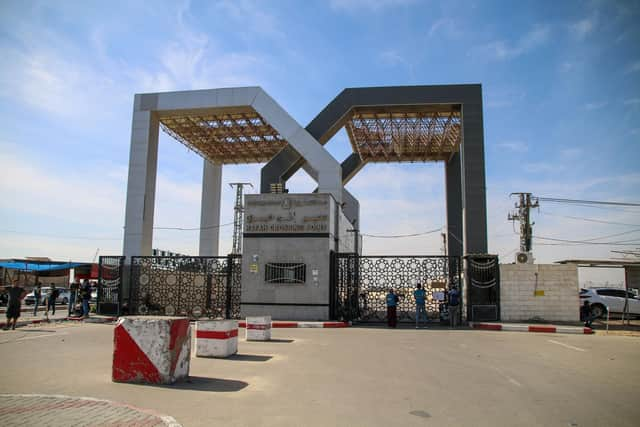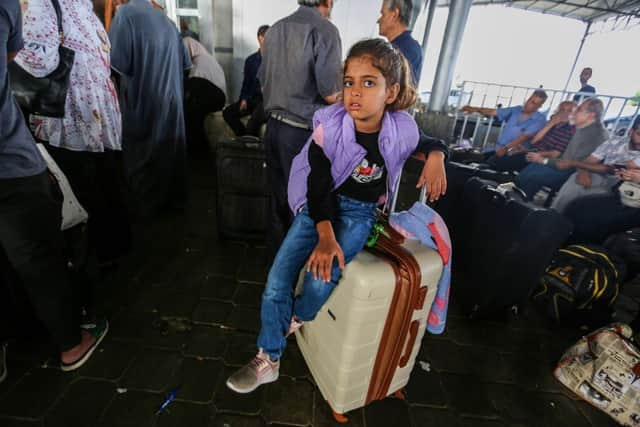Israel-Gaza war: How were certain foreign passport holders selected to leave Gaza?
For people in Scotland – and elsewhere in the world – with family members in Gaza, the sight of foreign passport holders crossing through the Rafah border into safety in Egypt on Wednesday was a welcome sight.
The initial few hundred people allowed out, however, included only a handful of British passport holders – on a separate list of aid workers allowed to leave. Some injured Palestinians are also being transported across the border to a field hospital set up on the Egyptian side.
Advertisement
Hide AdAdvertisement
Hide AdAround 100 British people, including First Minister Humza Yousaf’s parents-in-law, who were visiting family when the conflict began and found themselves trapped after a temporary visit, were able to leave on Friday.


Other foreign nationals remain in Gaza, where they will be hoping to be added to exit lists in the coming days. The Egyptian government has said it would help around 7,000 foreigners cross out of Gaza.
Of course, that leaves more than two million Gaza natives, who do not hold any other passport and who will be forced to remain in the conflict-hit strip as the war between Israel and Hamas shows no signs of abating.
How exactly the first selection of those allowed to leave was made remains secret. Negotiators from many countries’ embassies, as well as high-level talks between Israel, Egypt, Hamas, the United States and Qatar, finally came to an agreement on the issue after lengthy talks. The list, however, which was widely circulated on a Google spreadsheet, will have been carefully curated.
For Israel – and its closest allies – to agree to such a move, there will have had to be tight checks on any individuals with links to Hamas, to ensure militants are not able to exit the country, in fear of further attacks akin to those on October 7 – in Israel and beyond.


Some people expecting to be allowed to leave crowded at the border on Wednesday, awaiting to hear their names being called by the Hamas authorities. For many, the expected call did not come.
“No one understands how you get on this list or why you’re not on this list,” Hammam al-Yazji, a Palestinian businessman trying to get out of Gaza with his four-year-old American son, told reporters.
The fact the crossing is open at all is a beacon of hope not only for those who might be allowed to eventually leave the heavily-bombarded territory, but also for those who will remain in Gaza, living in what has been repeatedly described as a humanitarian catastrophe.
Advertisement
Hide AdAdvertisement
Hide AdAt the start of the conflict, no aid was able to cross into Gaza from Egypt due to a political stalemate – as well as the threat of Israeli strikes hitting close to the crossing. Food is scarce and fresh drinking water almost non-existent.
Now, while aid agencies say the humanitarian assistance making it to Gaza is still not enough, there is at least some. The fact the border has now opened to people as well – and that it appears safe to do so – means aid should also find it easier to get through. Let’s hope so.
Comments
Want to join the conversation? Please or to comment on this article.
